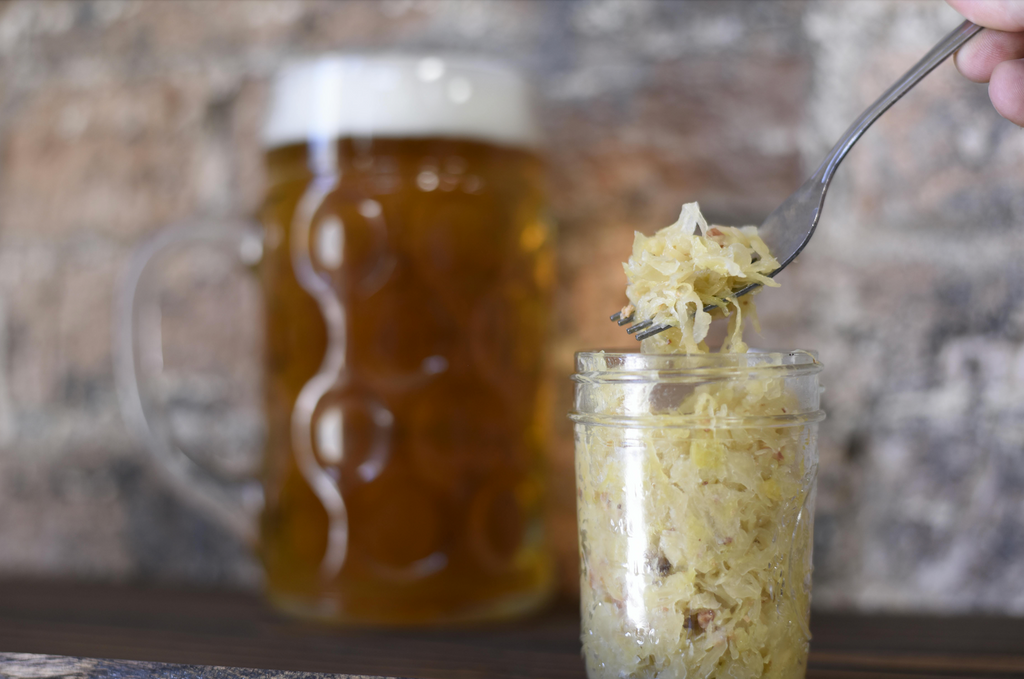Here at Gutsy we make bone broth concentrate. We boil grass-fed Australian bones for 6 days until we're left with a thick, syrupy, concentrate that's roughly 10 times as nutrient dense as your average home-made bone broth. While we also love traditional, home-made bone broth, it's more expensive to transport and has a shorter shelf-life which makes it tricky for us to sell. So, we choose to produce a concentrate rather than a powder...here's why:
1. Bone Broth Concentrate is Closer to Traditional Broth
To make Gutsy Bone Broth Concentrate we just:
- Crush the bones (to make it easier to extract the goodness.)
- Boil the bones for around 6 days.
- Season with Australian evaporated sea salt.
- Jar it
While note exactly boiling whole bones on the stove for 8-24 hours, it's pretty close.
The normal method for drying and powdering bone broth is a process called spray drying. Spray drying bone broth usually includes:
- Boiling bones in water for 8-24 hours
- mixing in carrier agent
- applying extreme heat and pressure to atomise the liquid broth into a fine spray of droplets
- mixing droplets with heated gas to evaporate liquid
- gather remaining dry powder
- bag it
Not so close to traditional broth. The further we go from traditional food methods (i.e. the more processed food is), the more potential there is to damage nutrition, flavour and taste/smell.
2. Bone Broth Powder can Have Damaged Nutrients.
This process of spray drying puts the broth under intense pressure (up to 10,000 PSI) and heat (often exceeding 200 degrees celsius).
Glycine is an important, anti-inflammatory amino acid, it's present in both in concentrated and powdered broth. Glycine is, however, damaged by very high temperatures, reducing it's bioavailability and anti-inflammatory effect.
Derived from collagen, gelatine is a crucial component for supporting the mucosal lining of the gastrointestinal tract. Again, gelatine is susceptible to very high temperatures and pressures which damage its structure.
The amino acid profile of bone broth concentrate includes proline, glutamine, and arginine, each with its unique and important contribution to gut lining integrity. Amino acids are also damaged by the spray-drying process, reducing their absorbability and usefulness to our body.
In other words, the high temperatures and pressure of spray-drying damages many of the broth flavours, colours and benefits.
3. Additives are Required for Spray-drying Broth
For the spray-drying process to be effective, carrier agents must be used to help increase the transition temperature of the liquid and also keep the final product from blackening or browning. Carrier agents often used include:
- Maltodextrin
- Whey Protein Isolate.
- Gum Arabic
- Inulin Alginate
- Modified Starch
As these are "carrier agents" and not "ingredients" food labelling does not always require these additives to be listed on the food label.
Why Gutsy Makes Bone Broth Concentrate
Bone broth is extremely valuable for our gut health, especially in sealing our gut through nourishing our gut lining. At Gutsy we choose to produce bone broth concentrate because it's nutritionally dense, delicious and convenient to send to our customers. Bone broth powder is also convenient, but the technical process of spray-drying broth can be damaging to the benefits of the broth, so what's the point?
Use bone broth to seal your Gut.




